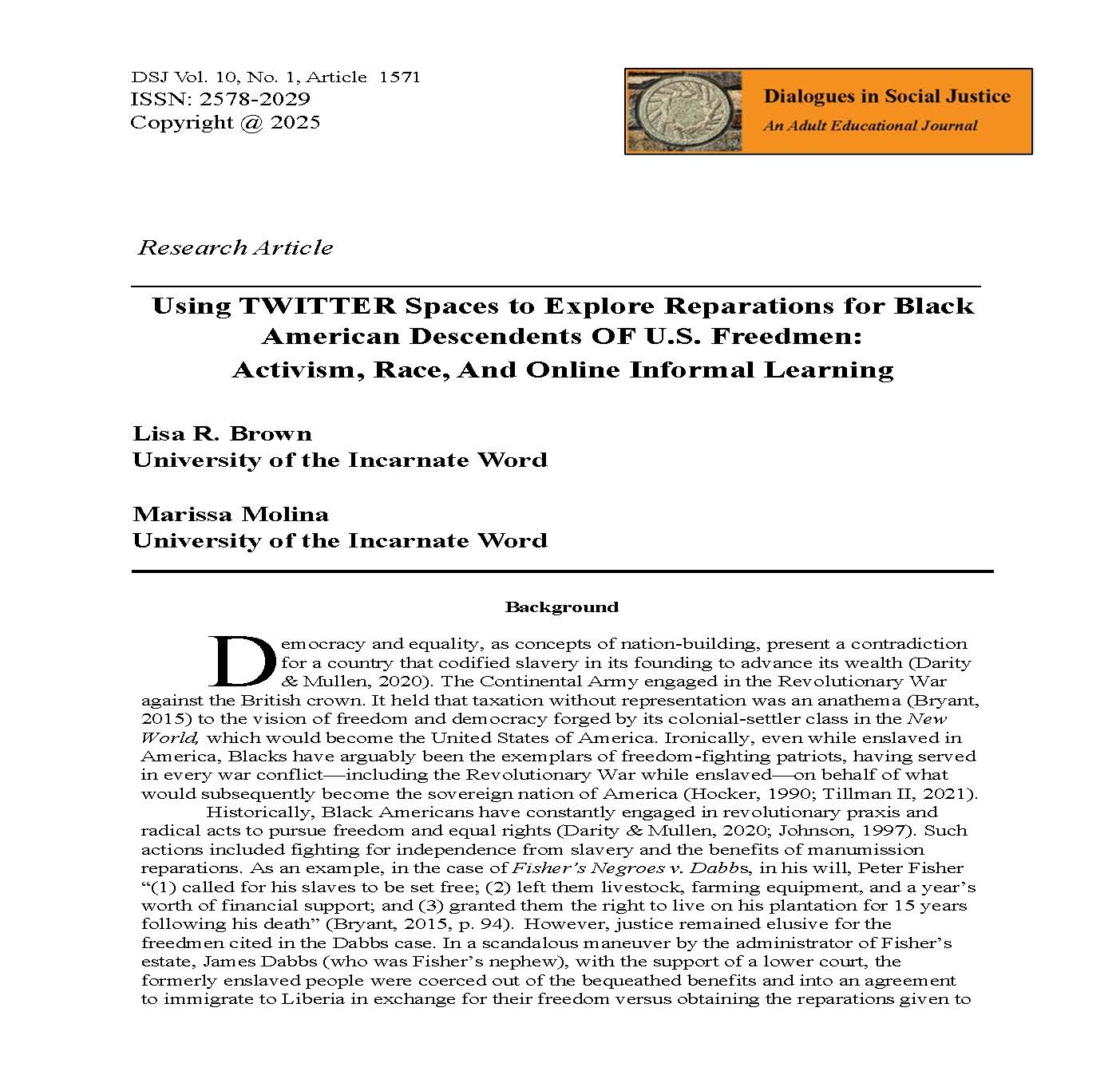Activism, Race, and Online Informal Learning
Using TWITTER Spaces to Explore Reparations for Black American Descendents OF U.S. Freedmen
DOI:
https://doi.org/10.55370/dsj.v10i1.1571Abstract
Lineage-based reparations for Black Americans who are the descendants of formerly enslaved people have been an emerging national debate on social justice in the United States. Researchers collected and analyzed secondary source data. Adults have been engaged in online non-formal learning using Twitter Spaces to discuss the emotionally and politically charged topic of national reparations. This ethnographic study emerged from a class assignment where graduate students used weekly discussion boards to grapple with contemporary social issues philosophically and theoretically. The national reparations movement was the topic selected for this article. The students in the course observed and documented discussions occurring in the Twitter Spaces voice capture rooms and connected them to course content. The experiences resulted in transformational learning moments for the Black American and Latino graduate students relative to their views about the merits of reparations for the descendants of U.S. Freedmen.

Downloads
Published
Issue
Section
License
Authors who publish with this journal agree to the following terms:
a. Authors retain copyright and grant the journal right of first publication with the work simultaneously licensed under a Creative Commons Attribution License that allows others to share the work with an acknowledgement of the work's authorship and initial publication in this journal.
b. Authors are able to enter into separate, additional contractual arrangements for the non-exclusive distribution of the journal's published version of the work (e.g., post it to an institutional repository or publish it in a book), with an acknowledgement of its initial publication in this journal.
c. Authors are permitted and encouraged to post their work online (e.g., in institutional repositories or on their website) prior to and during the submission process, as it can lead to productive exchanges, as well as earlier and greater citation of published work (See The Effect of Open Access).

